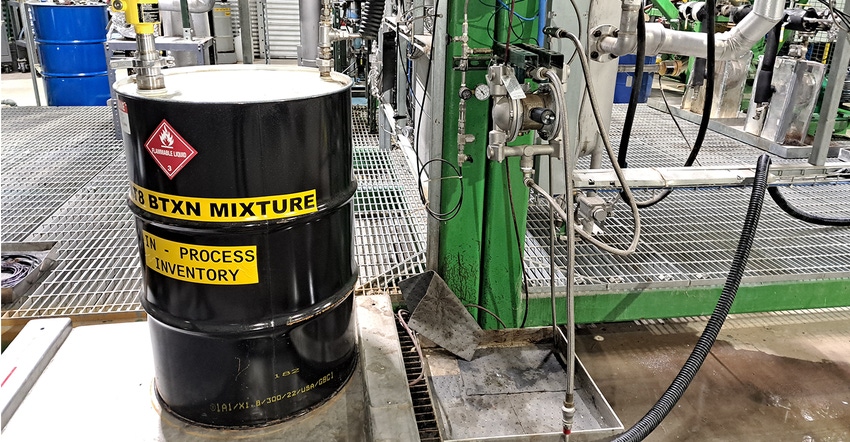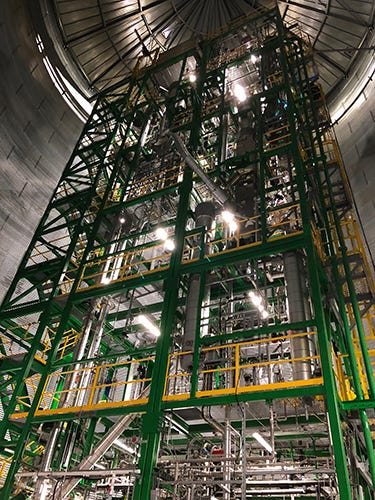Partner companies can use 55-gallon drums of aromatics — benzene, toluene, and xylenes (BTX) — produced from recycled mixed waste plastics for research and development.

Anellotech is offering drum-quantity product samples of aromatics produced from recycled mixed waste plastics. Made using proprietary advanced recycling aka chemical recycling technology, the blend of recycled benzene, toluene, and xylenes (BTX) will be available to current and potential commercial partners.
“Anellotech can offer BTX samples made directly from mixed waste plastics to potential commercial partners to encourage engagement with our program” says David Sudolsky, President and CEO. “Unlike thermal pyrolysis, Plas-TCat makes BTX and other chemicals in one reactor, providing true 100-percent recycled BTX (not mass balance approach) for studies today and eventual future commercial use.”
The initial plan is to set aside about 25 drums for business development purposes between now and the end of 2023.
|
“We expect that most partners will be fine with smaller volumes,” a spokesperson tells PlasticsToday.
We are also told that potential uses include “product development, specialty chemicals such as flavors and fragrances, and prototype samples.”
The samples are made at Anellotech’s TCat-8 facility during ongoing studies demonstrating Anellotech’s Plas-TCat catalytic pyrolysis technology. It’s a fully automated, 30-meter/98-foot-tall pilot plant (shown) located inside Trecora’s Silsbee, TX, facility.
Based on a proprietary catalyst and fluid bed reactor-regenerator system, Plas-TCat provides a new, direct route to light olefins and aromatics from plastic waste streams — such as polyolefins, polyamides (nylon), polyethylene terephthalate (PET), polycarbonate and polystyrene — without the need for steam cracker furnaces. The resulting output of BTX as well as ethylene, propylene, and butylene (light olefins), are suitable after separation for plastics manufacturers to produce a wide range of virgin plastics.
About the Author(s)
You May Also Like





